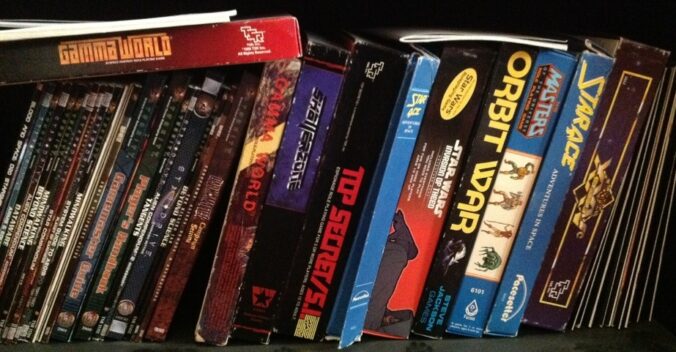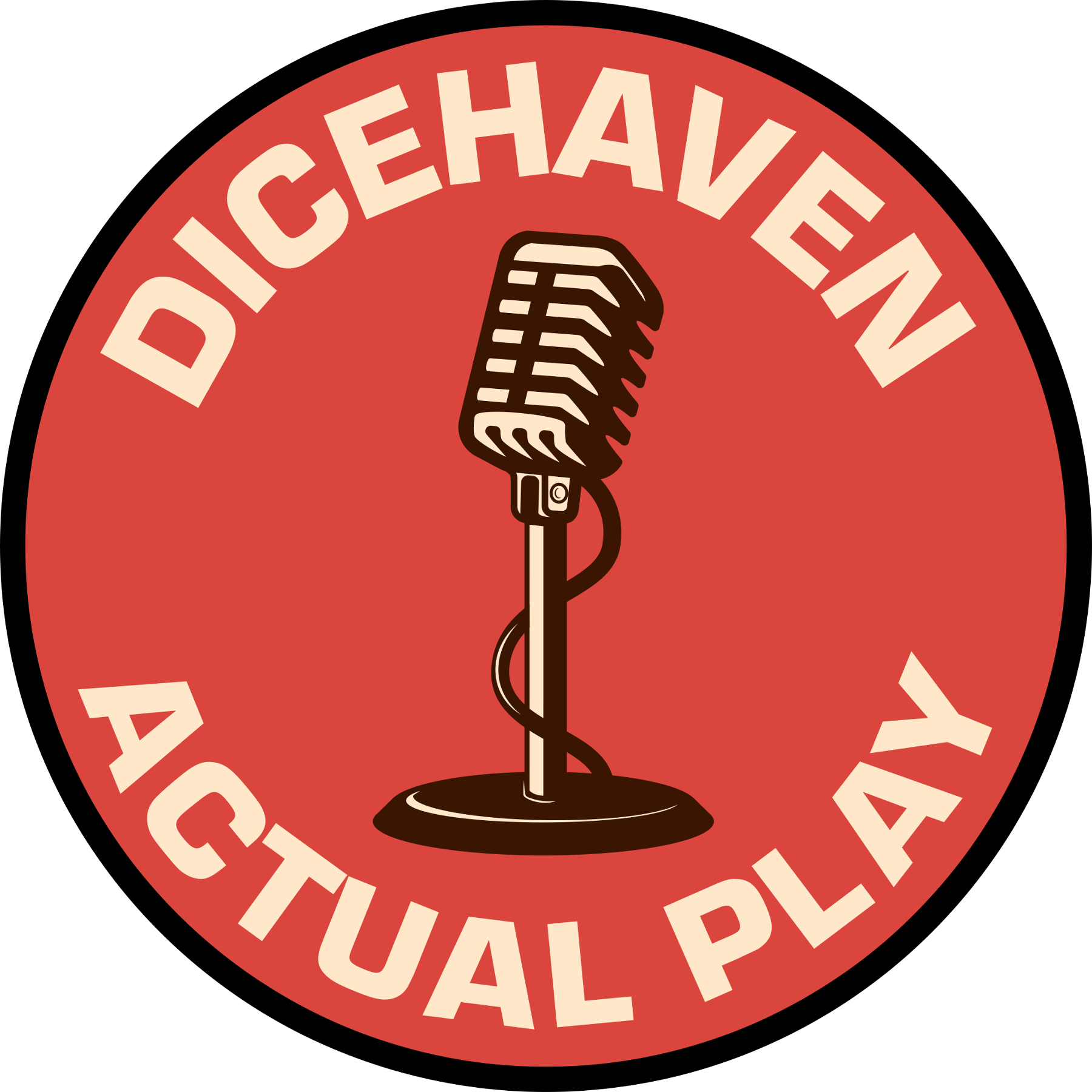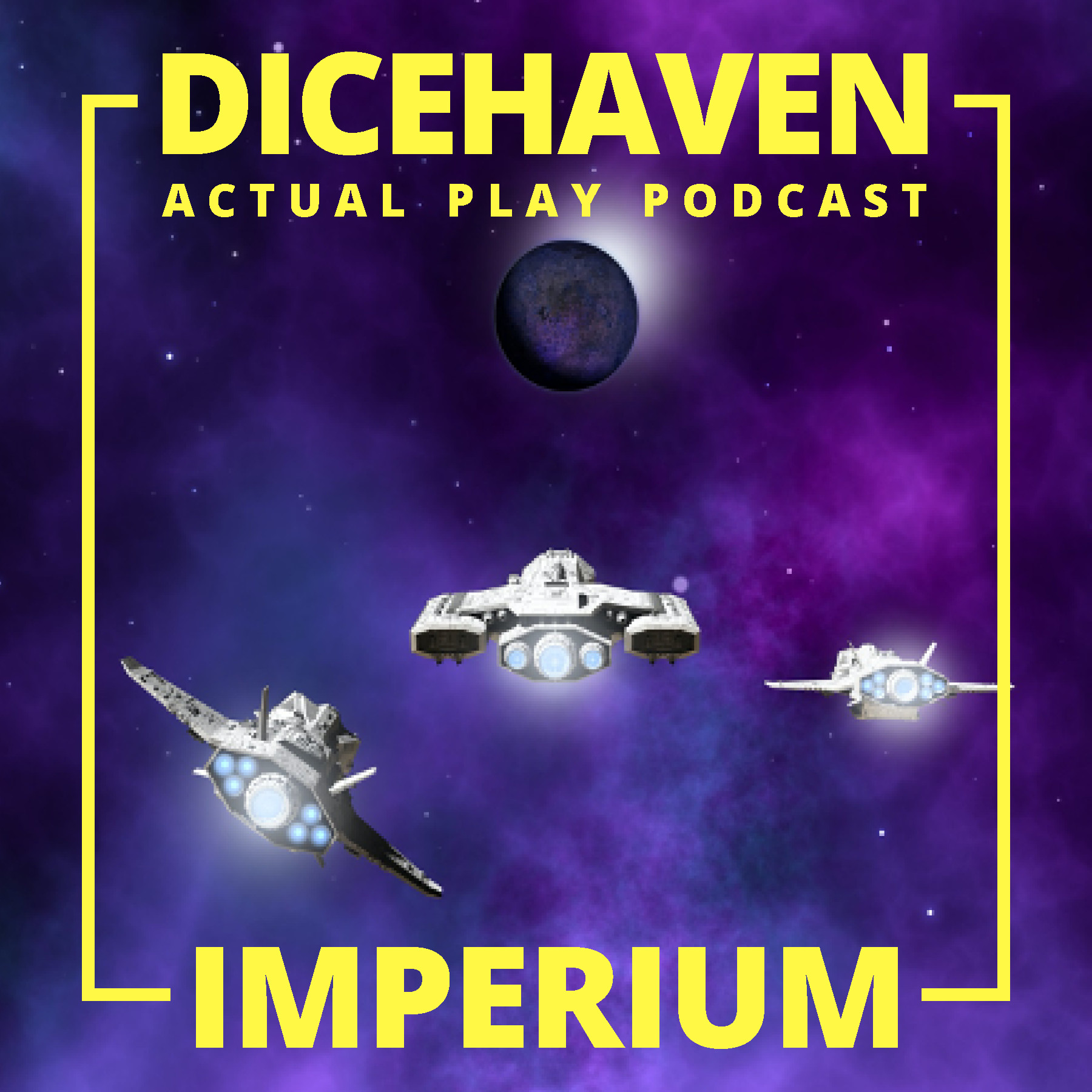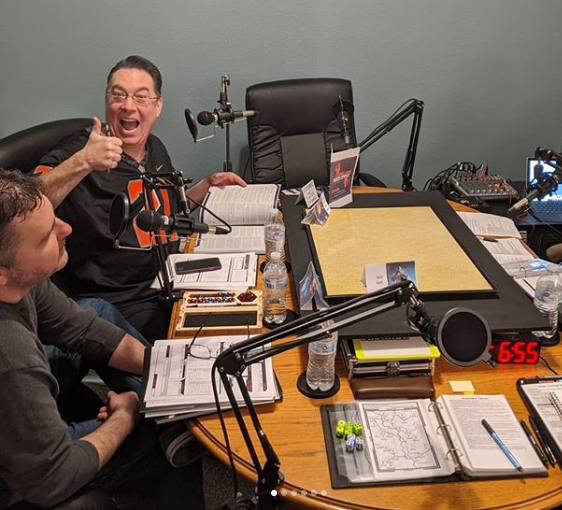I enjoy trying out new games, but I’ve also found that ‘mastering’ a game system often takes many sessions of running those rules. These days, I’m usually more comfortable converting an existing IP over to a game system I like and have mastered, rather than learning yet another rule system from scratch each time I run games in a new setting. Conversion does time some time, but so does learning a new system!
Anyway, with that background, here are my favorite game systems and some notes.
Overall Favorite Games
1. Fate
My all time favorite system. It comes in three flavors: Core, Condensed, and Accelerated. I’ve come up with several hacks for it (using a single D6, extending the skill list or using 2-level skill lists, adding multiple skills for combat, start with 0 stress, etc.). So I’ve really been able to tune it to run the way I like things to flow at my game table. Fate can do any setting, but it is a story game and not focused on things like magic items or extensive gear lists.
2. BX D&D
Old-school D&D from the old Basic/Expert D&D box set days. The Old-School Essentials retroclone is my go-to presentation of those rules, but I still have and play the original box set version occasionally. Other similar systems are Basic Fantasy and Labyrinth Lord. Simpler than AD&D or other editions, it focuses on rulings, not rules, and has a very narrative, fast-paced gameplay. Using their procedural adventure generation or the dozens of old-school BX modules, you can run games with little or no prep. There is also a sort of BX ecosystem with other games, such as Starshups and Spacemen and BX Gangbusters, using the BX rules chassis.
3. Traveller
I love Traveller, both the classic Little Black Books and the modern Mongoose version. There is an open-source version called the Cepheus Engine which has spawned dozens of settings. My big thing is avoiding complex accounting and running simpler starship combat rules; aside from that this system is just about perfect. Some people complain about slow leveling, but I see that as a feature not a bug.
4. d100
There are numerous games in the family. My favorites are ones where HP doesn’t increase over time, so combat is always fast and lethal. A great system for historical games without magic or powers (although there are rules for that if you need it). Example d100 systems are Basic RPG, OpenQuest, Jackals and Amboria (which use the Clash system), FrontierSpace, CovertOps, Barebones Fantasy and Art of Wuxia (which use the , d00Lite) / d00Lite system), and of course, Call of Cthulhu.
5. 24XX
The rules-light sci fi rules from the ‘2400’ game have spawned an entire ecosystem of hundreds of mini-games across all genres using the ’24XX’ open source version of the rules. I’ve written a few of these games myself. It is my go-to system if I don’t have time to prep for a one-shot, or if I’m running a con game like Doctor Who, Blake’s 7, or Firefly.
IP Specific Games
When possible, I like to stick to the top five game systems above. Other games I’ll consider for certain settings who have a system tightly bound to that IP that does a stellar job of emulating those genres are:
6. Pendragon (King Arthur era)
7. The One Ring (Middle-Earth)
8. The Mecha Hack (simple Mecha RPG setting)
9. Masks (Teen Titans Style Superheroes)
10. D6 (Star Wars)
I also like D6 system, especially the simpler versions like West End Games Star Wars 1st Edition or Mini6. I have hacked it to use HP instead of wound levels (to fix the invulnerable Wookie issue), and in my D6 Star Wars games, players are all Jedi or no one is a Jedi.
Other Flavors of D&D
11. D&D 5th Edition
Well, I had to include 5th edition of course. I’m running it right now. But I much prefer BX D&D over 5e, at least from a GM perspective.
12. 13th Age
I enjoy playing 13th Age and its focus on relative positioning, their ‘One Unique Thing’, and free-form skills, but it is a challenge to GM if you have players who need help with the rules since each class is totally different.




Recent Comments